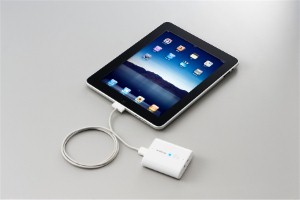
iCan’t decide: Which are better, tablets or laptops?
By admin on November 3, 2011
New design models for computers seem to surface every day, but one of the largest shifts has been the development of the tablet. But could they phase out laptops?
Tablet computers consist of a single flat panel and use touch-screen technology in place of a keyboard or mouse. Some require a stylus, a hand-held device similar in shape to a pen. Although gaining most of their popularity through Apple's launch of the iPad in 2010, tablets have been available since 2000.
Their popularity amongst consumers is so widespread that tablets are now selling twice as fast as laptops, according to recent studies.
But there are still some major benefits to notebooks. Tablets rely heavily on internet applications ("apps"), so without internet, usability is pretty limited. Laptops use software rather than apps, which don't need internet access to run. Plus, laptops are considered by most to be better for word processing and video editing needs, and usually have cheaper and more accessible computer repair services.
So what's so great about tablets, then? For one, they provide easier access to portable entertainment: surfing the web, reading digital books and magazines, watching videos and listening to music, while even the sleekest laptops are still bulkier, making portability difficult. Tablets also tend to have a much longer battery life. And as for word processing, many companies do have keyboards that can be attached to tablets, too.
Ultimately, the choice comes down to individual computer needs and preferences. In the meantime, the Intel-coined "ultrabook" model (think MacBook Air, Dell's Adamo) attempts to fall somewhere in the middle: ultra-thin, lightweight notebooks with longer batteries, designed to be even more portable.
If you have other questions or problems with your computer, you may also want contact your local Virginia computer repair service.
For a Free Computer Repair Quote Call (202) 670-9966
Related Computer Repair Articles
Social media may be more addictive than cigarettes, study reportsInformation storage: Local or cloud?
How to put your PC into safe mode
How to change font size for Macs
Is onsite computer repair that much better than me taking it to the shop?



Leave a Reply